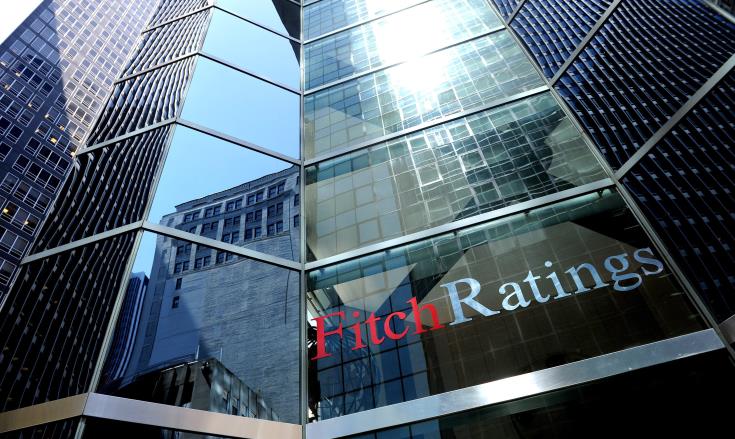Fitch Ratings has affirmed Cyprus`s Long-Term Foreign-Currency Issuer Default Rating (IDR) at `BBB-` with a Stable Outlook.
In a press release Fitch says that Cyprus`s rating balances its institutional strength reflected in per capita GDP and governance indicators in line with the `A` median rather than `BBB` and a track record of robust economic recovery and sound fiscal policy prior to the COVID-19 shock with balance sheet weaknesses, in particular, further increase in the high public debt and declining, but still elevated non-performing exposures (NPEs) in the banking sector.
Cypriot Minister of Finance Constantinos Petrides, in a press release points out that Fitch maintains the creditworthiness of the Republic of Cyprus in the investment grade with a stable outlook. He also notes Cyprus’s institutional strength reflected in per capita GDP, governance indicators, a history of strong economic recovery and sound / prudent fiscal policy prior to the coronavirus crisis are the factors maintaining the rating of the Republic of Cyprus.
Furthermore, Fitch notes that the COVID-19 pandemic has led to a deep recession of the Cypriot economy in 2020, similar to many rating peers. GDP contracted by 11.6% qoq in 2Q20 following a 2.1% fall in 1Q20. Tourism was hit particularly hard, with tourist arrivals more than 80% lower in January-August 2020 than a year ago, while domestic demand was more resilient due to the relatively low infection rates and limited lockdown measures.
Fitch forecasts a 6% GDP contraction in 2020 followed by a 4% rebound in 2021 and 2.7% growth in 2022 based on positive qoq growth rates from 3Q20 onwards. The forecast implies that the level of GDP will be 2pp lower in 2021 than the pre-crisis level. Cyprus had a strong track record of growth before the pandemic with average growth in the five years to 2019 of 4.4%, above the `BBB` median of 3.6%. Fitch maintains its assumption of 2% growth potential over the medium term, unchanged by the pandemic.
It says that the pandemic ended the gradual improvement in the labour market, which started in 2014 from a peak unemployment rate above 16%, but the deterioration from 6.3% in 4Q19 to 6.8% in 2Q20 was comparatively mild. The subdued labour market impact of the deep recession is partly due to government support measures and the flexibility of key industries, like tourism, reflected for example in the high share of seasonal foreign workers in the sector.
Fitch notes that the fiscal easing response to the pandemic and the decline in revenue due to the economic fall-out will lead to an estimated budget deficit of around 5% of GDP in 2020, compared with the persistent underlying budget surpluses pre-pandemic, which peaked at 3% of GDP in 2019. Moreover, it says that the budget deficit for January-July was EUR931 million in 2020, compared with a surplus of EUR386 million in the same period in 2019. This implies a EUR1.3 billion deterioration in the fiscal balance, approximately 6% of annual GDP. The government estimates that the full year cost of all fiscal measures will be equal to 4.5% of GDP.
Fitch forecasts the budget deficit to fall below 2% of GDP in 2021, driven by the economic rebound and expiry of the temporary support measures. Although the European fiscal rules will not be enforced in 2021, the budget balance is expected to remain well within the 3% threshold of the Stability and Growth Pact over the medium term.
It forecasts the gross general government debt (GGGD) to GDP ratio to increase to 113% of GDP in 2020, compared with 95% in 2019 and a previous peak of 109% of GDP in 2014, and well above the current `BBB` median of 36%. The declining trend of the public debt to GDP ratio between 2014 and 2019 reflects the combination of buoyant economic growth and significant fiscal adjustment and has increased the capacity to absorb the pandemic shock. The declining trend of the GGGD/GDP will resume in 2021 and debt will fall close to 100% of GDP by 2024. The track record of significant fiscal consolidation and prudent fiscal policy is an important rating strength in the current environment.
It says that the large banking sector remains a weakness, notably very high NPE ratios that are still weighing on capital and profitability.
According to Fitch NPEs are likely to increase due to the COVID-19 shock. About half of total performing loans in Cyprus are in a moratorium until end-December 2020. The measure will limit the increase of NPEs in the short term and support borrowers` liquidity in 2020. It remains hard to assess which portion of these loans will become non-performing.
(CNA)






